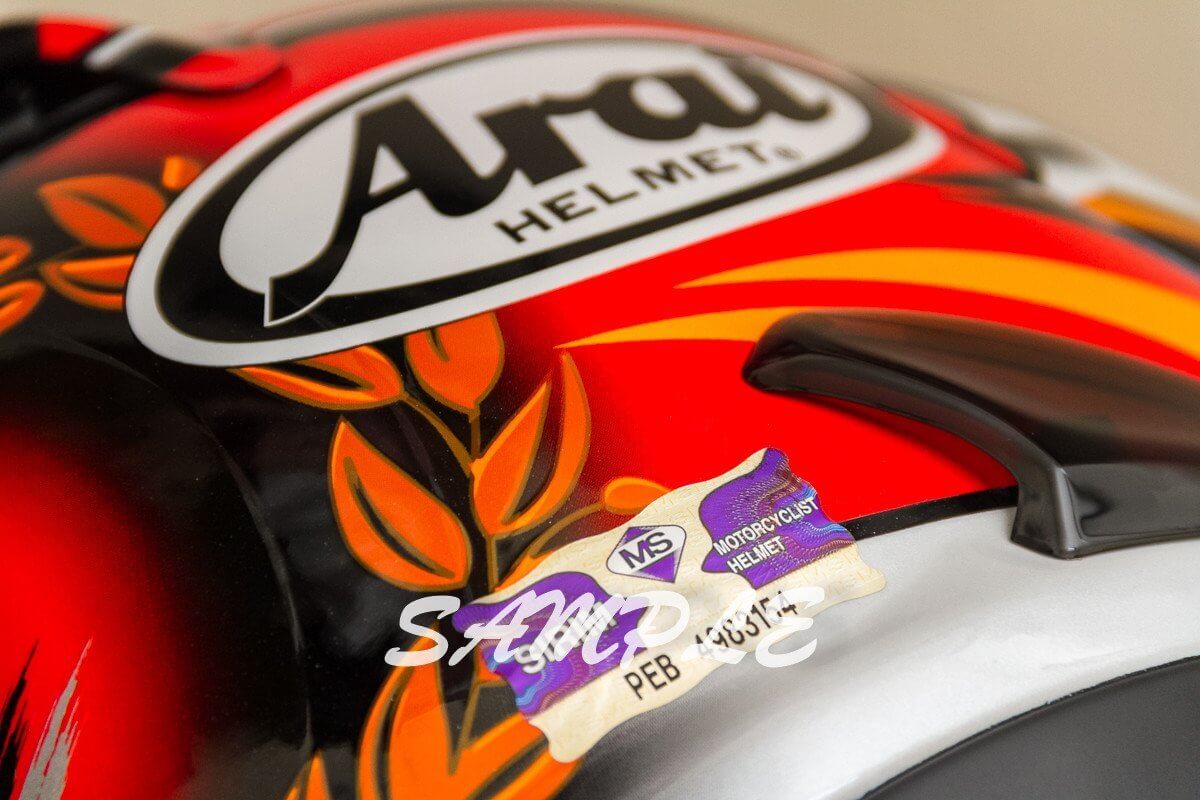Controlled items: A chat about helmets

It’s long been established that the helmet is the most important safety gear for a rider. Almost every country requires motorcyclists to wear a helmet that it has become illegal to not in some. Unfortunately, familiarity has started to breed contempt.
In Malaysia, full face helmets have been in the market a long time. Sure, we’ve seen Marquez, Rossi, Lorenzo, Guintoli and Sykes wear them on the track, but do we really understand the regulations behind the importation and sale of these helmets? Or which standards they comply with?
During my stint in Cycle World Malaysia, I met with with Dato’ Ir. Hj. Mohamad Bin Dalib, the Director of the Road Transport Department’s (JPJ) Automotive Engineering Division.
“We need to be properly geared when driving or riding. For example, driving with slippers is illegal. Sure, no one may know what you’re wearing inside your car, but it’s a safety concern. Safety starts with us. I feel sad when I see news of motorcycle crashes everywhere that happen in a span of a single weekend,” says the director.
“We have to remember that the roads shouldn’t be Graves on the Highway."
“In Malaysia, there is only one standard for helmets – the MS 1. All helmets manufactured in Malaysia must already comply with this standard, while for imported helmets, Malaysia has adopted the UNR (ECE) 22 certification.”
However, it is a known fact that motorcyclists are still wearing helmets that do not comply with any of the standards set. And that is worrying.
For the record, DOT certified helmets are not necessarily illegal, as long as they comply with standards set by SIRIM — the Scientific and Industrial Research Institute of Malaysia.
“Helmets are controlled items. Importation via unofficial channels is not allowed, although these may be approved models. The Customs have the authority to confiscate them if found,” explains Dato’ Mohamad.
“In the event of an accident, the helmet will be the first item taken by the police. They will then contact the Road Transport Department for the specs of the helmet. The department has the serial numbers of the imported helmets. If the helmet is found to have entered the country through a non-official channel, the insurance company will have a right to void the policy.”
In other words, it’s a criminal activity to import helmets via unofficial channels. The products are considered contraband. And the authorities are ready to crack down on it.
The Ministry of Domestic Trade, Co-operatives and Consumerism (KPDNKK) has carried out raids against these “criminals” but the trade is still flourishing. We could point fingers at whoever’s in charge of the border or at the airports but what would be more constructive is a concerted push by helmet importers and authorities alike to stamp out the activity once and for all.
Some quarters accuse the drive to eliminate parallel importers so that official importers can monopolise the market. The reverse may just be true as well. Parallel importers may be trying to get a bigger piece of the pie by not backing down and undercutting official importers by offering products at unrealistic prices.
Does the customer really win in this price war though?
Consider this.
Remember all those standards? ECE, SNELL, DOT, BSI, SIRIM, etc? They aren’t there to make things harder for manufacturers but to make sure helmets conform to certain standards.
Each standard is adopted by a certain region or country. ECE is the European standard, and has been adopted by many countries due to its modern methods of testing.
As a consequence, you may end up getting a helmet from another market, which conforms to different sets of standards and regulations, if you did in fact buy it through an unofficial channel. Yes, one could argue that a good helmet should be protective enough, regardless of standards, but what about the fit? A helmet with Asian fit sold in the United States may not necessarily agree with the head shapes of Asians in Asia.
Arai Helmet Ltd. President Michio Arai says helmets for different markets are made to the standards and requirements of those respective markets. Selling them in another market is illegal.

As a consumer, I would want to save money on helmets for use on many other things, but buying cheap doesn’t mean buying right. Buying a helmet through unofficial channels will cause you more problems than its worth. The prospect of having insurance problems may be just one thing, but how about technical support?
It can be difficult to discriminate between an official helmet and a contraband one. Certain brands, like Arai and Shoei require additional SIRIM certification, thus the official items must have a SIRIM sticker on the back of each helmet. Shark helmets require their owners to register online for warranty by using the helmet’s serial number. Suomy and KYT helmets should have “JPJ Approved” stickers. But it isn’t so easy to determine authenticity for certain brands. The unscrupulous seller could easily lie about the helmet’s origins or just be plain ignorant about helmet regulations.
We are talking about riders’ safety here.